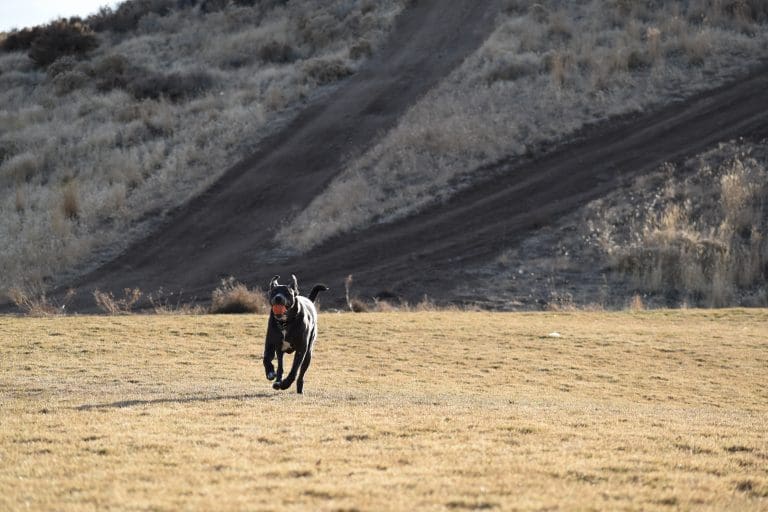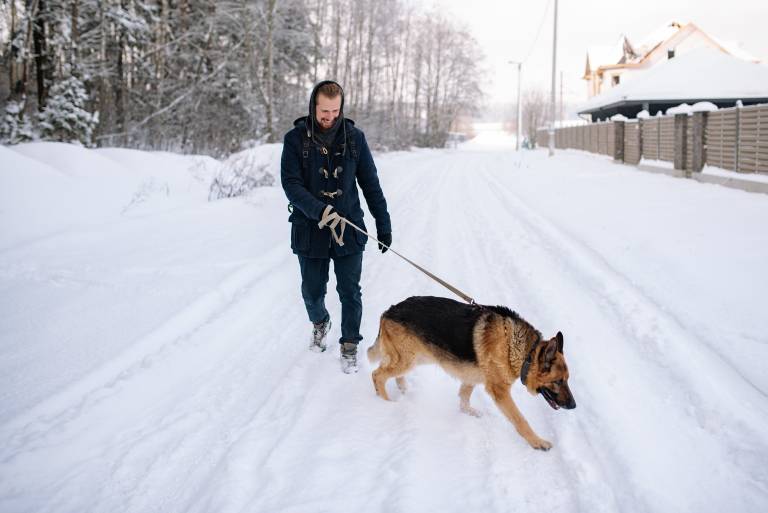What Do Dogs Do When They Sense Death?
Post Date:
December 10, 2024
(Date Last Modified: December 13, 2024)
Many people have pondered what goes through a dog’s mind in the face of distress. Dogs possess remarkable senses and an emotional depth that allows them to perceive human feelings in ways that often elude us. When confronted with death, dogs display behaviors that can be both heartwarming and puzzling. Recognizing these actions can deepen our appreciation for the bond we share with our canine companions as they navigate the complex emotional landscape of life and loss.
Keen Senses and Response to Illness
Dogs have an extraordinary ability to detect subtle changes in their surroundings. Their sense of smell vastly outperforms that of humans, enabling them to identify scents that escape our notice. This heightened olfactory sensitivity allows dogs to recognize signs of illness or the changes signaling that a person may be nearing death. Research has indicated that dogs can identify specific chemicals released by a person’s body during severe illness. Their perception is not confined to physical ailments; dogs can also detect emotional shifts, such as anxiety or sadness, that often accompany a dying individual.
Behavioral Changes in the Face of Death
When dogs sense that death is near, their behavior may shift significantly. Many become more protective of their humans, displaying signs of anxiety. A dog might remain close to a loved one who is unwell, following them throughout the house or lying beside them. This instinctual behavior stems from a desire to offer comfort and companionship during distressing times. Conversely, some dogs may become more vocal or restless when sensing something is awry. Increased barking or pacing can signal their response to the emotional turmoil they perceive in their environment. Dogs are highly attuned to human emotions; their reactions often reflect the fear, sadness, or uncertainty they detect.
Stories of Loyalty and Mourning
There are countless anecdotes of dogs that seem to sense when a person is nearing the end of their life. Some dogs refuse to leave the side of their dying humans, remaining steadfast until the last moment. This unwavering loyalty underscores the profound bond that can exist between dogs and their owners. Many pet owners have witnessed their dogs behaving differently in the presence of illness or death, experiences that can be both heartbreaking and beautiful.
Beyond loyalty, some dogs exhibit behaviors suggesting they understand the concept of death. There are stories of dogs visiting the graves of deceased owners or family members, lying quietly in the grass or sitting vigil. Such actions can be interpreted as a form of mourning, revealing their grief and loss. Dogs may also stop eating or become lethargic after losing a loved one, indicating they process their emotions similarly to humans.
Recognizing Grief in Dogs
The emotional intelligence of dogs is often underestimated. Their grieving process can manifest as changes in behavior, appetite, and energy levels. Like humans, dogs experience a spectrum of emotions and can feel sadness and loss deeply. Recognizing these signs is crucial for pet owners, who can provide their dogs with the support and comfort necessary during challenging times.
When a dog senses that death is imminent, it can also activate a protective instinct. Many dogs will attempt to shield their humans from perceived threats, becoming more alert and vigilant. This heightened awareness may lead them to bark at strangers or exhibit aggression, but it is essential to recognize that these reactions stem from a place of love and protectiveness.
The Comfort of Canine Companionship
Dogs possess an innate ability to provide comfort during difficult times. Many stories highlight dogs snuggling up to their humans during their final moments, offering warmth and companionship. This instinctive behavior emphasizes the unconditional love dogs can provide. In moments filled with uncertainty and fear, a loyal dog can bring immense comfort to someone facing the end of their life.
Pet owners often find solace in their dogs during grief. Whether through gentle nudges or simply sharing quiet moments together, dogs can instill a sense of peace during difficult times. They remind us that love transcends loss and that we are never truly alone, even in our darkest hours.
Shared Grief Among Pets
When a beloved pet passes away, it’s vital to acknowledge that our dogs may also grieve. They might exhibit signs of sadness, such as searching for the deceased pet or showing reluctance to engage in their usual activities. Providing extra attention and comfort during this period can assist them in processing their grief.
The loss of a pet can also heighten sensitivity in other dogs within the household. If one dog mourns visibly, other pets may reflect that distress, becoming clingy or restless or exhibiting changes in eating habits. This shared experience of grief can strengthen bonds among remaining pets as they navigate their emotions together.
Creating a Safe Environment for Healing
To help dogs feel secure during times of loss, pet owners should foster a comforting environment. Establishing routines filled with love and allowing for moments of quiet reflection can aid both humans and dogs in coping with the pain of losing a loved one. Just as we grieve, dogs need time and space to process their emotions.
As we continue to learn about the emotional lives of dogs, it becomes increasingly evident that they possess a unique sensitivity to the complexities of human emotions. Their instinctual behaviors demonstrate a profound understanding of life, love, and loss. In the face of death, dogs serve as reminders of the importance of companionship, loyalty, and the bonds that endure even the most challenging moments.
Ultimately, dogs exemplify love and loyalty, offering companionship, protection, and comfort during distressing times. Recognizing their behaviors fosters deeper connections with our dogs, allowing us to appreciate the unique roles they play in our lives. Through every moment of grief and loss, dogs remain steadfast, providing unwavering support and unconditional love.






